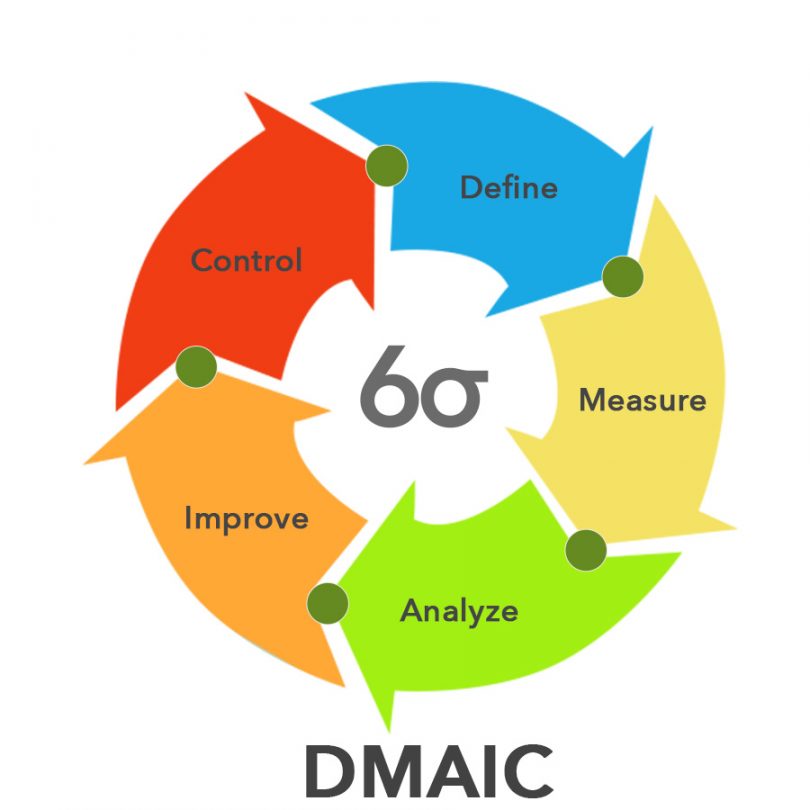What are the different levels of Six Sigma Certification?

The different levels of sig sigma tell us who can perform what role and when it has to be dealt with in a project. At each level, there is an underlying difference that a professional may be having in terms of skills, knowledge, and technical vocabulary to undertake a project.
Professionals who earn Six Sigma certification become key stakeholders in improving the quality of operations within their organizations. They strive to eliminate variation in manufacturing and business operations by implementing standard processes and establishing metrics that minimize the potential for defects and help in improving the bottom line of the organization.
As a general practice the Six Sigma certification comes in six levels:

Level 1: Six Sigma White Belt

Professionals are considered Six Sigma White Belts if they have not undergone a formal certification program or extended training. A single small session with an overview of relevant methods and tools to workers at all levels of an organization how they contribute to efficient, reliable outcomes. With this basic grounding,
White Belts participate in projects and problem-solving tasks related to quality management and waste reduction. However, in some cases, this level is not being formally recognized and some organization they start the level from Yellow Belt onward.
Level 2: Six Sigma Yellow Belt

A Yellow Belt designation indicates exposure to Six Sigma concepts that go beyond the fundamentals provided for a White Belt. Yellow Belts may have attended training sessions over a day or two, developing the knowledge on Problem Solving Tools they need to be assigned to a project as fully contributing team members.
They may guide limited-scope projects and assist managers at higher belt levels. At Quality HUB India we offer this certification and the person should have basic knowledge about the processes and product as a prerequisite with at least one year of industrial experience.
Level 3: Six Sigma Green Belt

Six Sigma Green Belt typically works part-time on Six Sigma projects. While they may work full-time on a complete business process, they will only devote 20-50% of their time to the project itself. These professionals are extremely valuable to project managers for a few reasons. First, Green Belts have a comprehensive understanding of Six Sigma, the methodology, and its tools.
Likewise, they have expertise in functional knowledge and bringing improvements to a project. Their primary roles focus on helping team members collect and organize data for a Six Sigma project. This task is crucial and leads directly to proper data analysis. At Quality HUB India we offer this certification and the person should have basic knowledge of problem-solving tools like 7QC Tools and knowledge about products, processes, etc, as a prerequisite with at least three years of industrial experience.
Level 4: Six Sigma Black Belt

A Six Sigma Black Belt typically works on a full-time basis driving improvement projects. These professionals are the main project and team leaders and guide other employees towards bringing value to the process. As a result, Black Belts are naturally the first to mentor other Belts. This may include performing training sessions, classroom discussions, or other forms of mentorship.
In a mature organization, a six sigma black belt will have several six sigma green belts working under him. At Quality HUB India we offer this certification and the person should have hands-on experience of applying problem-solving tools in several projects or various process improvement activities like reduction in rejections, defects, customer complaints handling et as a prerequisite with at least three years of industrial experience.
Level 5: Six Sigma Master Black Belt

The final certification that Six Sigma professionals strive for is the Six Sigma Master Black Belt. As the ultimate certification, Master Blacks Belts have the most thorough, comprehensive understanding of the methodology.
They work hand in hand with upper management and executives, reporting to them the status of projects. Ideally, a Master Black Belts works like a liaison, relaying information between senior advisors and team operators.
A seasoned Black Belt with strong leadership and problem-solving skills can go on to become a Master Black Belt in long run. This designation indicates that an expert takes a broad view of strategy throughout a business, coordinating teams across verticals.
Level 6: Six Sigma Champion
The Six Sigma Champion by definition is the individual in any company who translates the mission, vision, and values into a Six Sigma deployment strategy that supports the goals of the company. They do this by determining which projects to deploy and identifying resource needs and removal of roadblocks.
The Champion is the person that develops the idea to undertake a Six Sigma project within a part of the business. They are the person sponsoring the deployment. They will generally be a senior manager, often an executive within the business such as a Vice President or Director. They should have training in Six Sigma for Champions in order to have a deep understanding of the principles of the methodology.
The Six Sigma Champion plays several important roles in leading Six Sigma teams to the successful completion of projects. Their responsibilities are to:
- Guide, Mentor, and coach Six Sigma teams
- Remove bottlenecks during the course of the project
- Ensure projects are aligned with the business’s goals
- Ensure teams are on track
- Ensure timely completion of projects
Quality HUB India Offered Six Sigma Online Courses:
Hindi Version:
English Version:
- Six Sigma MINI Course – Free
- Lean Six Sigma Yellow Belt
- Lean Six Sigma Green Belt (Under Development)
- Lean Six Sigma Black Belt (Under Development)
Related Article on Six Sigma:
- Top 09 Best Seller Books on Six Sigma
- Explain the different Levels of six sigma?
- सिक्स सिग्मा क्यों महत्वपूर्ण है? सिक्स सिग्मा लागू करने के लाभ WHY SIX SIGMA IS IMPORTANT? BENEFITS OF IMPLEMENTING SIX SIGMA
- 10 Must Read Professional Books In 2021









[…] Explain the different Levels of six sigma? […]
[…] सिक्स सिग्मा ने एक लंबा सफर तय किया है क्योंकि इसे पहली बार 1995 में जनरल इलेक्ट्रिक में जैक वेल्च (Jack Welch) द्वारा कॉर्पोरेट रणनीति के रूप में पेश किया गया था। तब से इसे विभिन्न उद्योगों में व्यापक रूप से लागू किया गया है […]
[…] Explain the different Levels of six sigma? […]
[…] Explain the different Levels of six sigma? […]
[…] Explain the different Levels of six sigma? […]
[…] of Six Sigma to organization-wide Quality Management […]